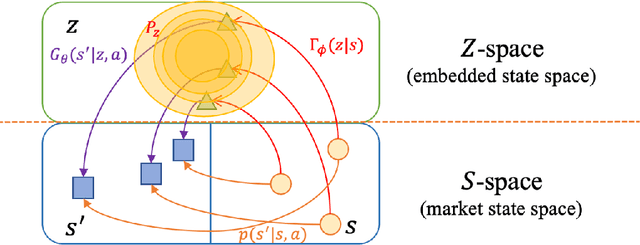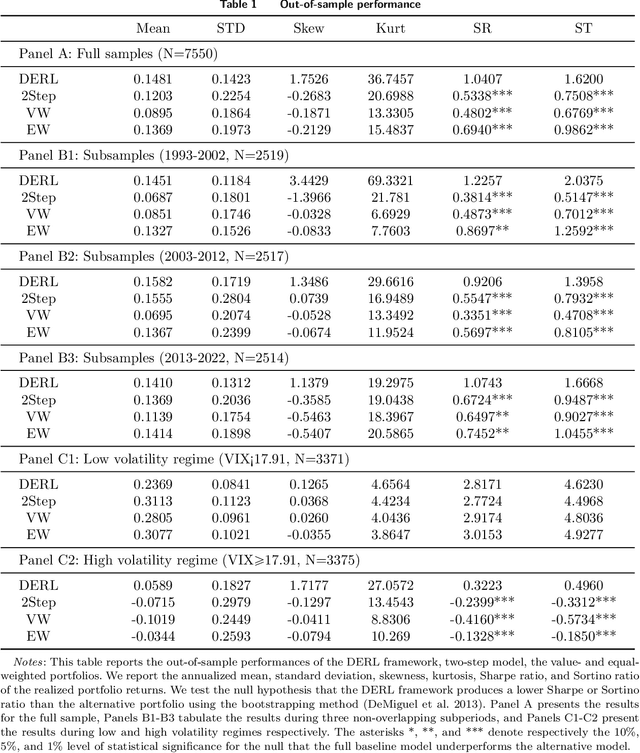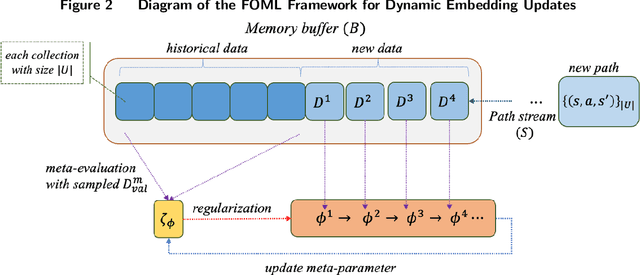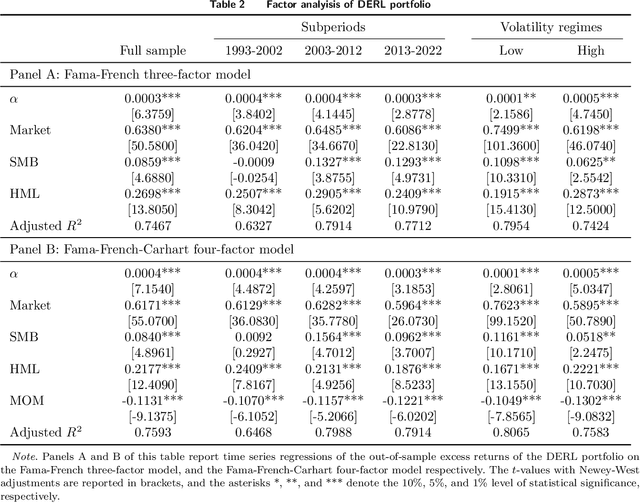Chunyang Zhou
Reinforcement-Learning Portfolio Allocation with Dynamic Embedding of Market Information
Jan 29, 2025



Abstract:We develop a portfolio allocation framework that leverages deep learning techniques to address challenges arising from high-dimensional, non-stationary, and low-signal-to-noise market information. Our approach includes a dynamic embedding method that reduces the non-stationary, high-dimensional state space into a lower-dimensional representation. We design a reinforcement learning (RL) framework that integrates generative autoencoders and online meta-learning to dynamically embed market information, enabling the RL agent to focus on the most impactful parts of the state space for portfolio allocation decisions. Empirical analysis based on the top 500 U.S. stocks demonstrates that our framework outperforms common portfolio benchmarks and the predict-then-optimize (PTO) approach using machine learning, particularly during periods of market stress. Traditional factor models do not fully explain this superior performance. The framework's ability to time volatility reduces its market exposure during turbulent times. Ablation studies confirm the robustness of this performance across various reinforcement learning algorithms. Additionally, the embedding and meta-learning techniques effectively manage the complexities of high-dimensional, noisy, and non-stationary financial data, enhancing both portfolio performance and risk management.
 Add to Chrome
Add to Chrome Add to Firefox
Add to Firefox Add to Edge
Add to Edge